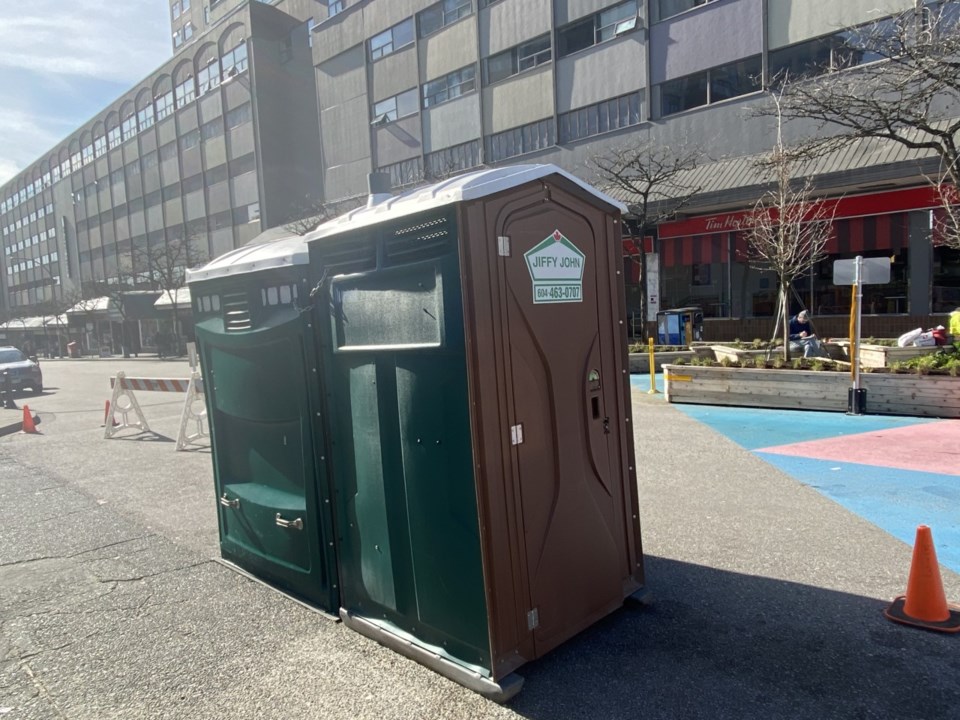Editor:
Re: New West removes ‘nuisance’ uptown portable washroom, Record News
The CAT Peer Network is writing this letter in response to a recent news article published in the Record, with respect to publicly accessible washrooms. The news article is intended to capture the reaction from the community to a number of porta potties that have been installed throughout the city to address a gap – that gap being a lack of washrooms available to the public.
Like many other societal concerns, this lack in public washroom facilities affects everyone, but disproportionately affects those who do not have safe homes to return to, to rest, and to shower, before starting a new day.
With even further precariousness introduced after COVID-19, we are seeing an even greater increase in the number of people who do not have homes to return to.
Back in February, the CAT Peer Network began petitioning for the installation of publicly accessible washrooms.
At this time, there were few in place. This is a public health concern, not to mention one of basic human dignity. With the closures of businesses that resulted from the advent of COVID-19, and other reliable community services, including libraries and malls – the city recognized that washrooms needed to be installed, and quickly.
The first concern, before washrooms were even in place, was the risk of needles in the washrooms. A member of the peer network was contracted to service the public washrooms daily. This includes making sharps containers available, replacing them when filled, and picking up needles discarded near and inside the washrooms.
Limited funding meant that this work had to be done on foot. However, the work was done regularly and diligently. The peer network member has always and continues to go far beyond the scope of his work to make sure the washrooms are safe.
The peer network member has stated that no garbage disposal has been installed in the washrooms. This encourages people to throw items on the floor or in the tank itself.
For washrooms that are frequently used, toilet paper and hand sanitizer runs out within a day. Washrooms are also frequently not serviced by the contractor – resulting in them being unsanitary and smelly.
The following are recommendations on how to address the concerns raised:
- Install one washroom at each location, not two.
- Ensure garbage disposal is readily available.
- Contract someone to monitor the use of washrooms. Many communities have hired members of the community to do this work. Secure funding for sanitizing, garbage removal, and sharps disposal twice daily for frequently used washrooms. This includes the washroom near the police station and Anvil building on Columbia Street, and the one near Moody Park.
- Service porta potties daily
Whenever introducing a new service, there should ongoing regular community consultation, and respectful conversations with key stakeholders on how to address the concerns raised.
We need to remain cautious about how we choose to frame larger societal issues, and continue to find solutions that will work. When issues do arise, we are gifted with an opportunity to reflect on the type of communities we wish to live in, and what role we want to play in moving ourselves closer towards that vision.
We urge our communities to use the discomfort that we are now facing from what seems to be stemming from porta potties to confront a larger reality. We need to house people. And until we are able to find better solutions to the increasing number of people dying from a contaminated drug supply, we need to create safe spaces for people to use drugs and dispose of sharps.
Courtney Pankratz, CAT Project Coordinator



